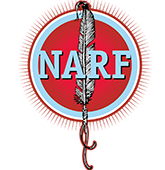Two years ago, Tarnowski attended a training in Duluth given by the National Child Welfare Resource Center on Legal and Judicial Issues. Stories of historical trauma that have helped lead to that disparity, and also what led to the creation of the Indian Child Welfare Act, were shared, Tarnowski said, creating “a little fire in my belly.”
“I wanted to try something new,” she said.
With the help of the University of Minnesota Duluth’s Center for Regional and Tribal Child Welfare Studies, she formed a group of area public and tribal child welfare workers, from reservations ranging from Grand Portage to White Earth, to meet regularly over lunch. That group helped inform the new court. It also has helped build stronger relationships and understanding between everyone involved, said Brenda “Bree” Bussey, project director of the UMD Center for Regional and Tribal Child Welfare Studies.
Read the full article at the Duluth News Tribune website.
